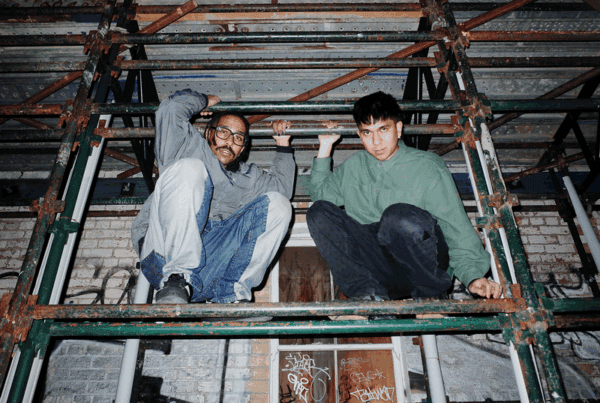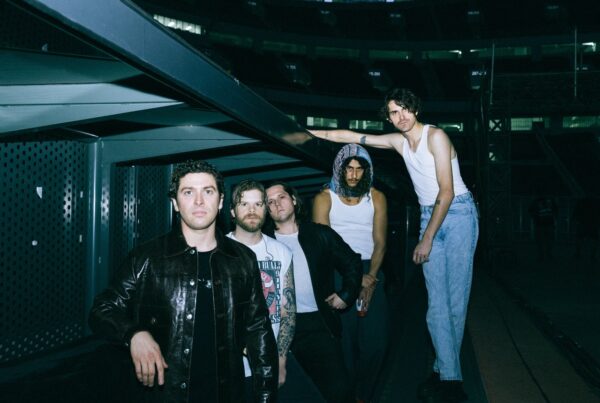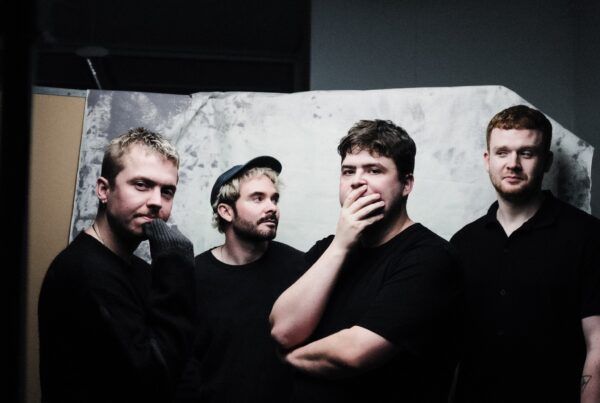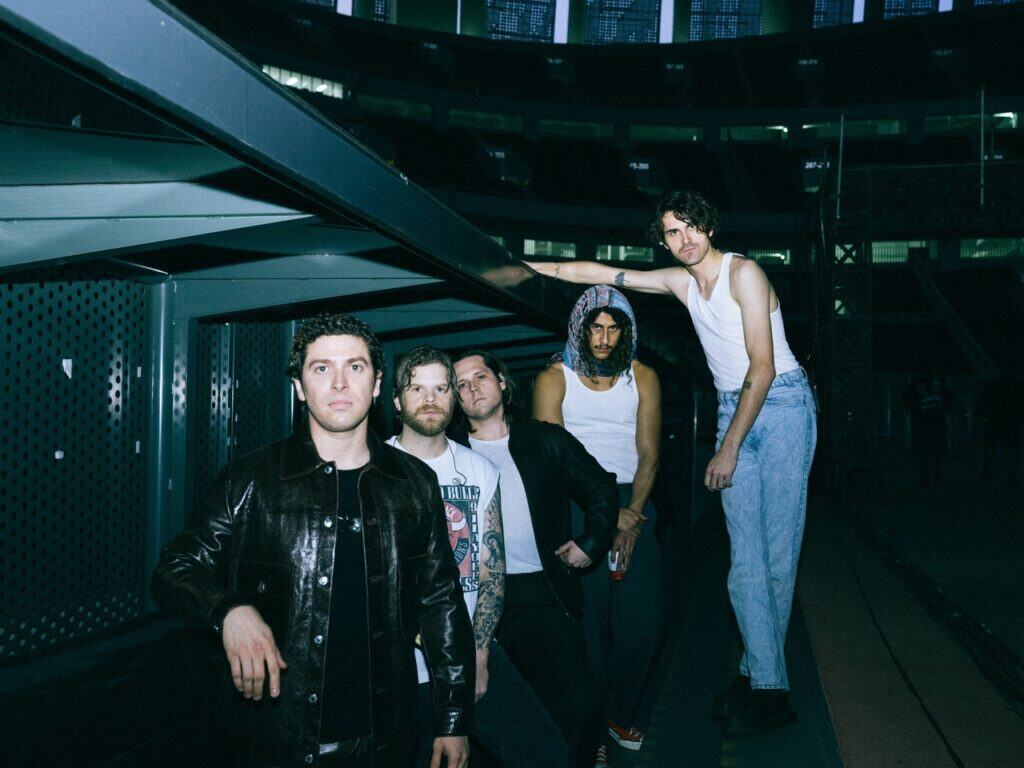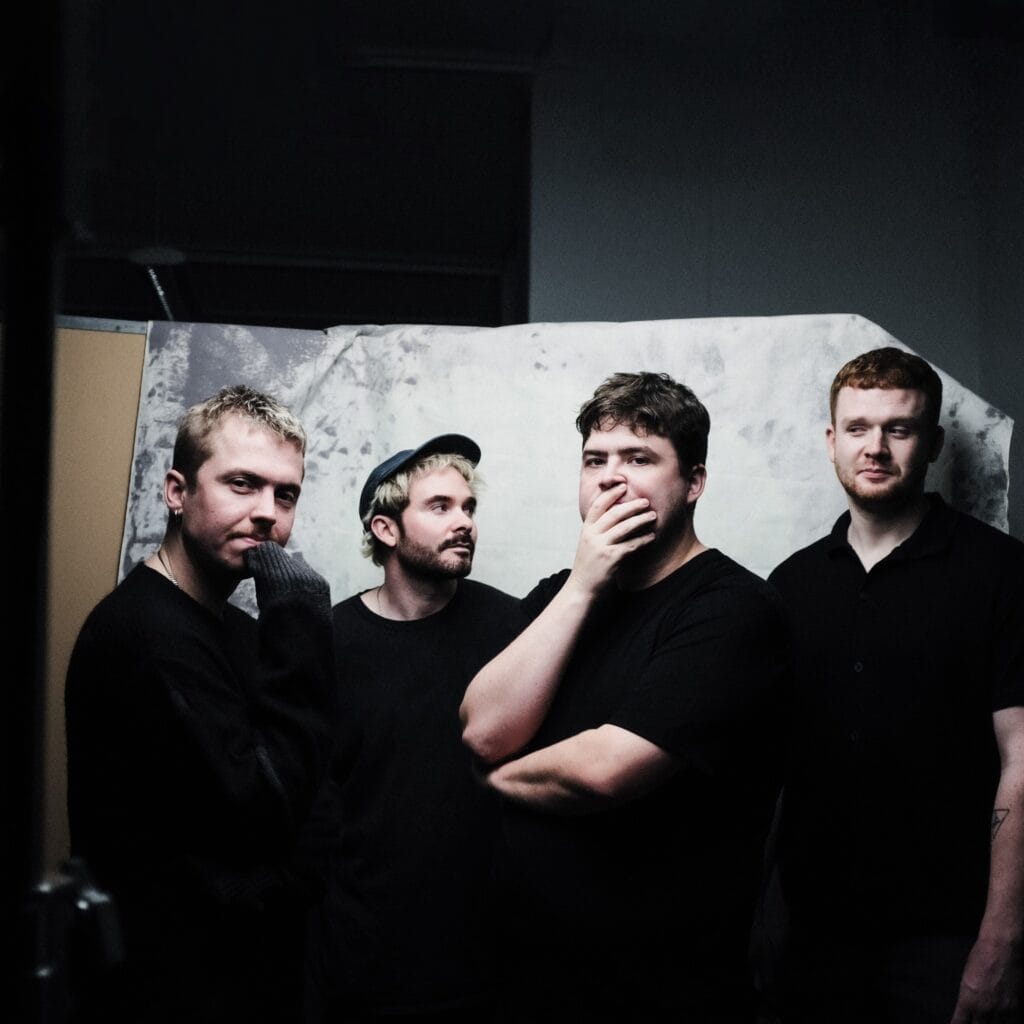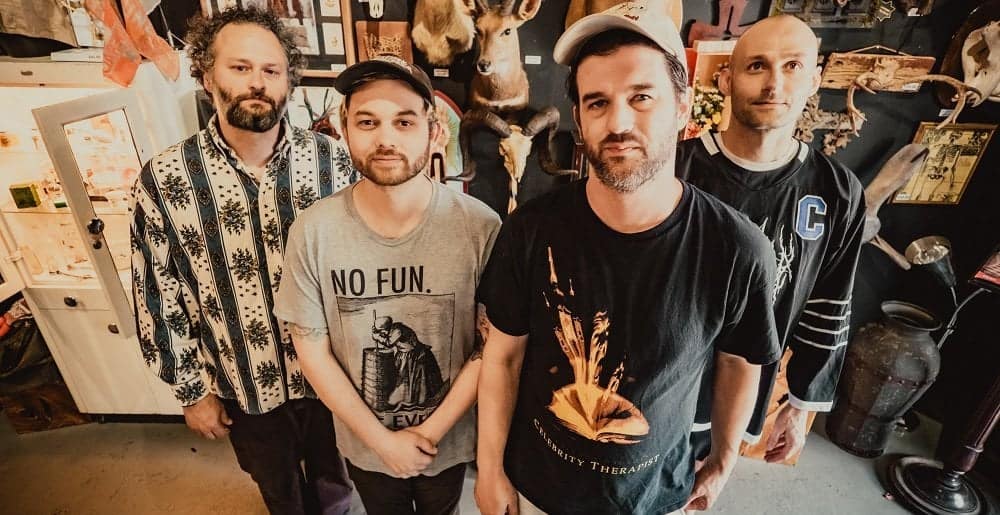‘’As soon as the album came out, every single aspect of my life changed’’ says Nick Sadler, Daughters guitarist. It’s been over a year since the release of You Won’t Get What You Want, the fourth studio album from these abrasive noise rock poets, and since then the four-piece have been performing relentlessly; reaching more people with their music, inspiring, consoling and uplifting countless individuals with its asphyxiating dissonance. But all this comes at a price. Here Nick shares insight into the gruelling touring process, what fuels him, and what, for him, makes it all worth it.
‘’I’m definitely ready for it to end’’, says Nick, having been on tour since November 2018. It’s clear it’s been an exhausting experience as he describes how his living situation, jobs and personal relationships have been overturned by ceaseless live performances. A process made more challenging by his affliction with Lyme disease. Nick tells us that one of the few weapons you have against it is routine, but that it’s almost impossible to retain when you’re on the road, constantly adapting to new time zones and venues. He compares it to how it feels when running on a treadmill with no end in sight, pouring out your essence while bone tired. ‘’I feel much older than I did a year ago’’, he says.
Nick continues to cut through the romanticised image of touring bands with frank openness, commenting on how members of Daughters have lived in relative squalor several times, relying on friends and family at ages when many would turn their noses up at couch surfing. ‘’It’s important to check in with yourself’’, he says, and evaluate whether you’re prepared to make the necessary sacrifices. His advice for those serious about touring: If you’re going to go for it, make sure you love music and that you can take a lot of shit for it. Because you most certainly will.
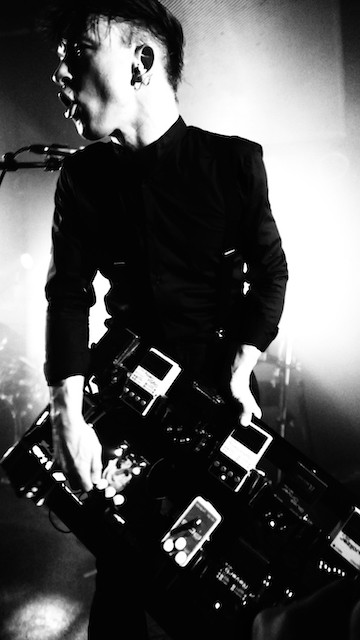
Having foregrounded the realities of being in a band, we ask what success means to the prolific musician. He starts by stating that they’re not successful in a commercial sense, so money obviously isn’t the driving factor here, and nor do they have wide audience appeal. When on the road, the band often come across a friendly Uber driver, intrigued by their guitars and effects pedals, only to then watch their enthusiasm collapse when they listen to the music. Daughters isn’t for everyone.
Yet for those who do appreciate it, Nick greatly values inspiring people with their music, and tells us about speaking to those for whom the music has had a positive impact after gigs. As someone from an underprivileged background, he is sympathetic to those suffering with mental health issues and difficult family situations, and is eager to encourage people to express themselves. Reaching people via his music is clearly something important to him. One person he met found Daughters in prison, and told Nick that it helped them to focus, improve and see beyond their own suffering.
With its uncompromising off-kilter rhythms and scathing vocal repetition, these harrowingly vivid soundscapes do lead you toward emotions you’d rather not face. They beckon you to venture into the black, dilapidated labyrinth inside that you pretend doesn’t exist, and may even give you the courage to confront what lurks within. It’s hideously cathartic.
Not only does their music change those who listen to it, but also the minds behind it.When asked what their music brings him on a personal level, Nick laughs – ‘’that’s so complex’’, he says. After a short pause he goes onto explain how he now recognises that various subconscious elements crept into the album without him realising. Having observed how people have interpreted the compositions, seeing it reflected back at him on tour, he’s learned more about himself and the person he used to be, allowing him to grow alongside the music.
He then goes onto outline the value he draws from the creative process. That’s the primary focus for him, as opposed to performing live. Their shows have little audience interaction, partly because Nick has to, as he describes it, fold himself up ‘’into this little pocket’’. If a show isn’t as good as it could be, it’s because he’s not in that zone.
‘’I don’t consider myself much of a performer. My bread and butter is creating the tunes’’
Nick loves the creative aspect, experimenting and combining subversive complementary components. ‘’While I’m touring I often think I’ll never want to write again, but the second I come home I just start writing tunes’’, he says. And then there’s the act of sharing it. You have to put it out there, and you don’t know what people will make of it. But once you’ve gone the distance and said what needed to be said, it is ultimately an incredibly satisfying feeling.
When asked what drives his creativity, Nick gave an unexpected response – he doesn’t know. Having been writing songs for over twenty years, the specific forces behind the process are now elusive; the action is simply ingrained. Beyond that he draws inspiration from a lifelong interest in film, having worked in a video store for years and attended film school. Unsurprising, perhaps, considering the care and attention Daughters put into their monochrome music videos. All members of the band are also avid readers, in particular of dark, dry and bleak poetry. ‘’Lex (Marshall) has a poetry book out now’’, he mentions casually.
In addition, Nick talks about how there’s no shortage of inspiring, creative people in their hometown of Providence, Rhode Island: ‘’You can throw a rock and hit someone doing something you’ve never seen before’’, in what he describes as a highly motivational environment. An example he gives is Human Beast, a two-piece who originally specialised in electronic instrumentals before fine tuning their approach into something more industrial, gradually evolving to elevate the total performance above the music itself. Nick ties this back into finding success, not through external metrics like Facebook followers, but instead by finding a sense of community among fellow performers, and engaging in cutting edge experimentation between genres.
As the interview nears its end, we ask Nick what advice he’d give to young musicians today. Again, he pauses, choosing his words with care:
‘’Don’t stop making music just because it doesn’t reflect what you think you know is working about other people’s music.’’
When you’re starting out it’s very easy to feel bad or discouraged, he explains, because there’s a tendency to constantly compare yourself to artists you admire. What that means is you have taste, and you need to explore and deepen that on your own terms in order to develop your own expression. The danger is that if you try to emulate someone else’s expression too closely, it may obscure your own vision. Alternatively, if you’re making something that you cannot recognise in other people’s music, that doesn’t mean you’re doing a bad job.
Take inspiration from your favourite bands and follow trails others have blazed before you, but if you literally try to walk in their footprints, changing your gait and stride to match someone else’s, you’ll never make your own mark. And if you can’t appreciate the silhouette of your own expression, you’ll struggle to find your own path.
‘’For a long time I floundered’’ Nick says, ‘’comparing myself with that I thought was good’’. Since them he has matured alongside his music and learned to trust his intuition, developed over decades of exploration and experimentation. In the vein of Charles Bukowski, Nick advises artists to get out of their own way, trust the creative intent behind their music, and ‘’simply let it be what it is’’.

